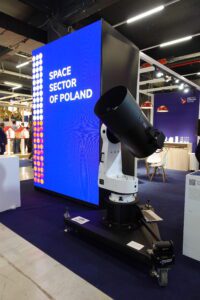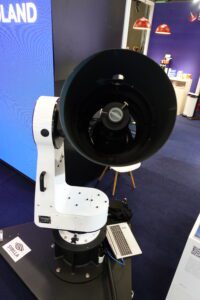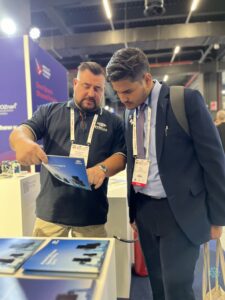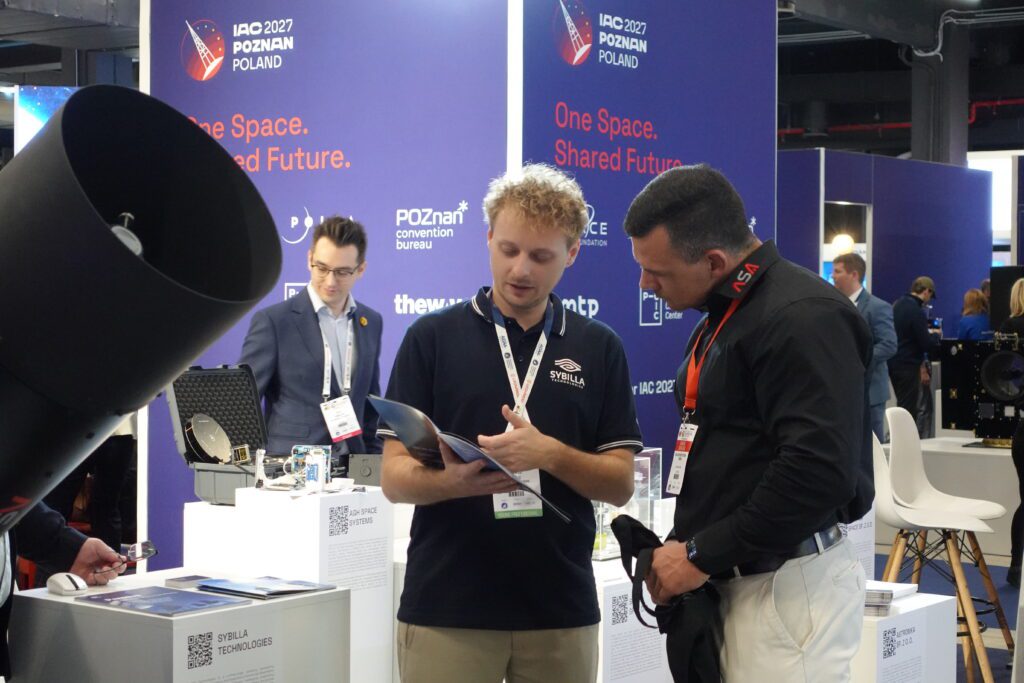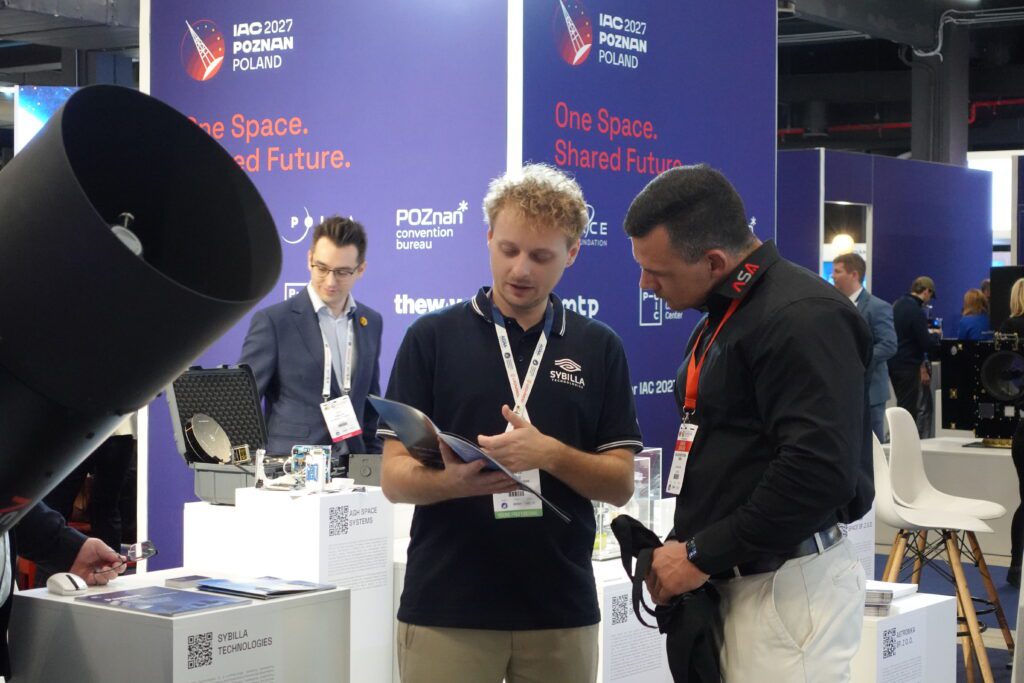This year’s International Astronautical Congress (IAC 2024) in Milan, under the theme “Responsible Space for Sustainability,” brought together leading figures and organizations from across the globe to discuss the future of space exploration and operations. At Sybilla Technologies, we were proud to be a part of this significant event, where the need for responsible space behavior was underscored as essential for the sustainability of space activities, not only for current operations but for generations to come.
The Growing Challenge of Space Sustainability
The rapid expansion of space-based assets, including satellites and large constellations, has transformed industries and modern society, making space indispensable for areas like digital infrastructure, global trade, and environmental monitoring. However, as space becomes more crowded, the risks to operational stability and long-term sustainability grow. The increase of space debris and the increasing complexity of operations threaten not only space assets but also critical services on Earth.
At IAC 2024, these challenges were discussed extensively, with a clear focus on how we, as a global community, must collaborate to protect the space environment. The stakes are high: from ensuring the safety of space operations to preserving access to outer space for future generations, the need for sustainable space practices is more urgent than ever.
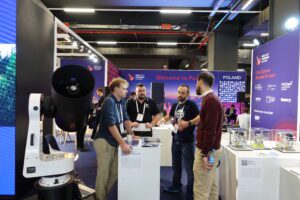



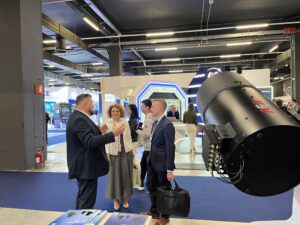
Sybilla Technologies’ Role in Space Safety
At Sybilla Technologies, space safety and sustainability are at the core of our mission. During IAC 2024, our team engaged in meaningful discussions with international organizations, space agencies, and industry leaders, presenting our cutting-edge solutions designed to enhance space safety and support sustainable operations.
One of the highlights of our participation was the presentation of Perseus, our advanced system for ground-based optical observations. The system plays a crucial role in tracking space debris and monitoring high-risk objects, contributing to the prevention of collisions in orbit. By providing real-time data and supporting services like collision avoidance, Perseus helps mitigate the risks associated with increased congestion in space.
Our presence at the event also allowed us to explore potential collaborations with global partners interested in leveraging our technology to support responsible space activities. Key discussions with organizations from regions such as the Middle East and Asia highlighted the growing demand for data services that improve space situational awareness and ensure the safety of space operations.
Building the Future Together
Beyond technology, our focus at IAC 2024 was also on fostering international cooperation. The sustainability of space activities depends on partnerships between governments, private entities, and international organizations. By working together, we can develop the policies and technologies that will maintain space as an open, peaceful, and accessible environment for all.
We were particularly excited to see growing interest in our work from space agencies and industry leaders fromdifferent regions. These interactions reinforced the importance of expanding our global reach and continuing to collaborate with new partners on critical initiatives that will shape the future of space.

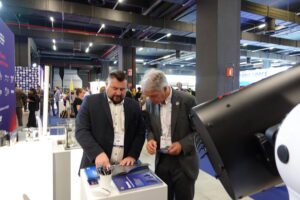

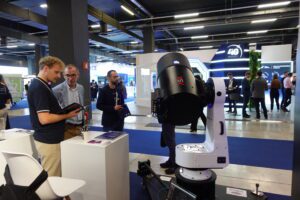

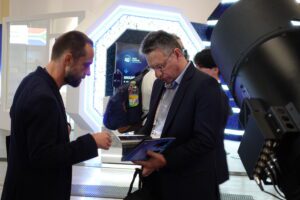
Looking Ahead: Our Commitment to Sustainable Space
Sybilla Technologies remains committed to advancing technologies that contribute to the long-term sustainability of outer space. Our participation in IAC 2024 was a pivotal moment for us to demonstrate our leadership in this field and to engage with a global audience focused on building a safer, more responsible space environment.
As we look ahead to the next International Astronautical Congress in Sydney in 2025, we are already planning to expand our presence and deepen our contributions to the global conversation on space sustainability.
Stay tuned as we continue to innovate and lead the charge toward a more sustainable space environment for all. At Sybilla Technologies, we believe that by working together, we can ensure that outer space remains operationally stable and open for peaceful exploration and cooperation, now and into the future.

